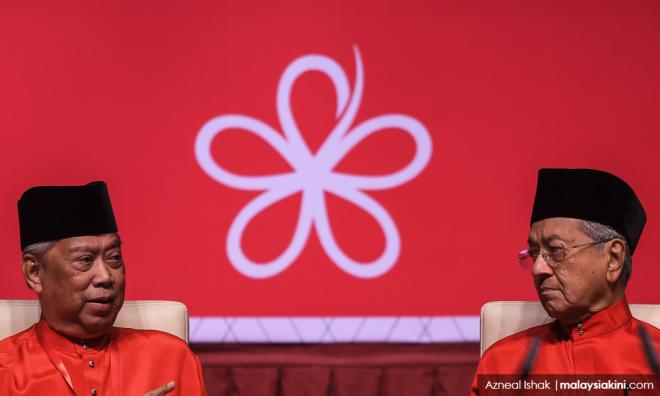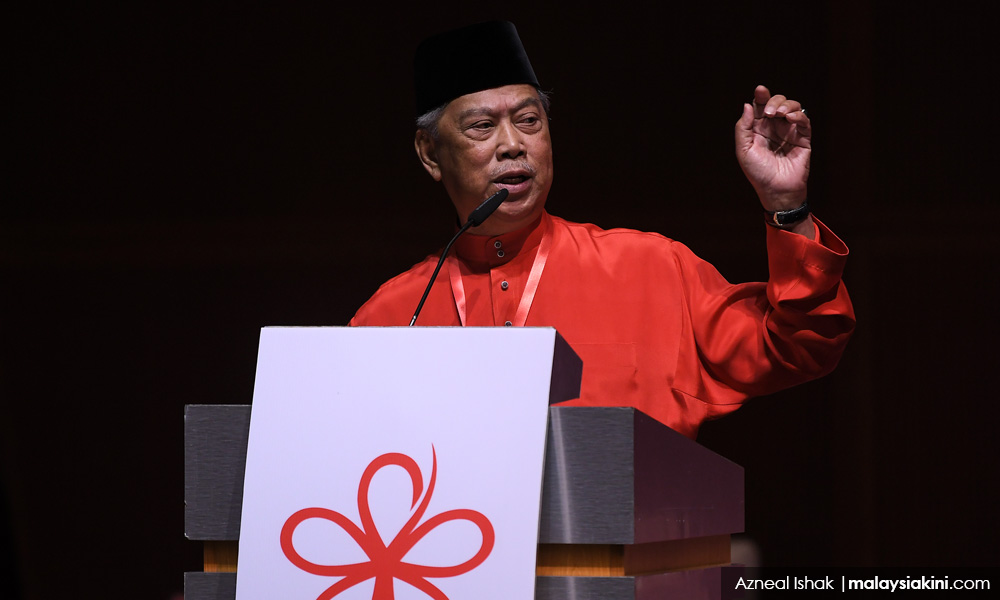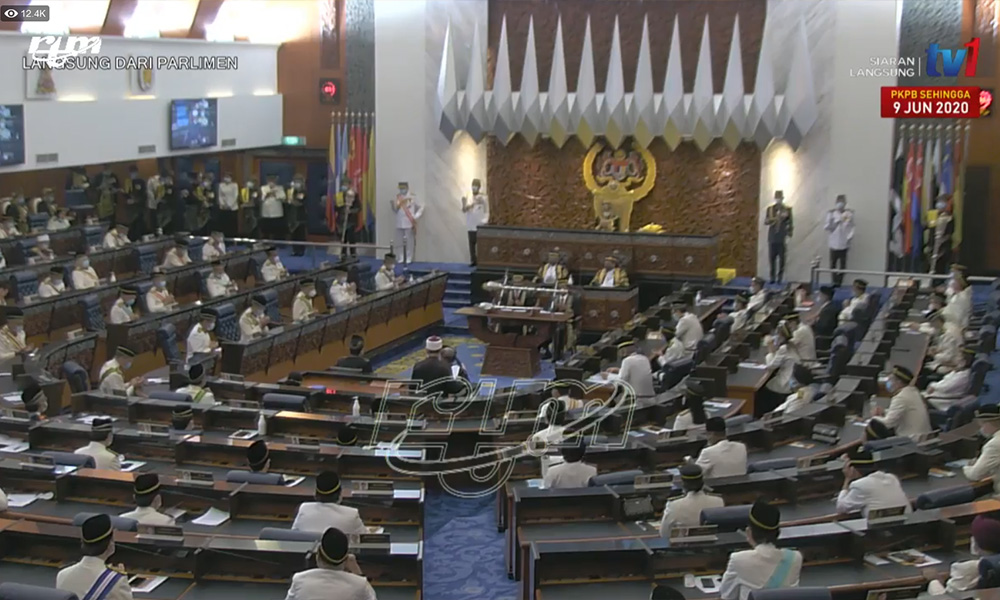
Dr Mahathir Mohamad has been extremely good in getting what he wants, throughout his entire political career. When he was prime minister for the first time, he got rid of three of his deputies before he found one in Abdullah Ahmad Badawi.
Musa Hitam didn’t last, Ghafar Baba didn’t last, and Mahathir made it a lifelong mission to make sure Anwar Ibrahim didn’t last as well.
When he was out of office in 2003, he never thought any of the prime ministers measured up, although he handpicked them. So he took out Abdullah, and he took the whole village to remove Najib Abdul Razak’s scandalous government.
Mahathir has always expected to have something to do with politics. He couldn’t keep to his pledge of retiring from it.
For those whom he regarded as having wronged him, he made personal undertakings to strike back. A master tactician with a wicked appetite to succeed, many are fearful of being on his bad books.
That is why Bersatu president Muhyiddin Yassin’s decision to expel Mahathir from the party was a bold move – one that took long deliberation and careful calculations. Here are what I consider Muhyiddin’s three tactical reasons for removing Mahathir.
1. Mahathir has nowhere else to go
In Malaysia’s political history, a top leader who is sacked or marginalised will form a new party. When Anwar was sacked in 1998, he formed PKR. When the progressives were marginalised entirely from PAS, they formed Amanah in 2017. When Muhyiddin, Mukhriz Mahathir and Shafie Apdal were sacked from Umno, they formed Bersatu.
Mahathir holds the book of records for having formed the highest number of new mainstream parties: Umno Baru in 1988 and Bersatu in 2016.
The biggest challenge in forming a new party is that it must occupy an ideology that is capable of amassing many votes. PKR took on urban, multi-ethnic voters; Amanah took on progressive Islamist voters.
Bersatu was positioned to replace Umno as the non-corrupt version of a Malay party that appeals to everyone. The name “Bersatu” is meant to unite the Malay votes again after they split three-ways between Umno, PAS, and Bersatu.
For Bersatu, the game plan was to win Putrajaya and then merge with Umno’s non-corrupt bloc so that they could be the de facto Malay party of the country. The background negotiations between Bersatu and Umno explain this intention clearly.
But now, Mahathir cannot form a new party again because the market for Malay votes is saturated. He could not form a new party to split the Malay votes the fourth way. Muhyiddin knows this. That is why Mahathir is challenging his expulsion, rather than accepting it and striking it out on his own.
In Pakatan Harapan, there is also no alternative party Mahathir could take over. PKR is unaccepting, Amanah is unappealing, DAP is antithetical to who Mahathir is.
Mahathir’s legacy as a defender of the Malay race became his biggest limitation. Muhyiddin knows that Mahathir has nowhere to go.
2. Muhyiddin controls more resources than Mahathir
As prime minister, Muhyiddin controls the official institutions. He controls the Registrar of Societies (ROS) that confirmed Mahathir’s resignation as Bersatu chairperson and affirmed Muhyiddin as his acting replacement. Without authority within the party, this makes it easy for Muhyiddin to consolidate power.

When dissatisfied, Mahathir cannot challenge this in court because Muhyiddin also allegedly controls that. Mahathir himself admitted this – that he will only get "unusual" court decisions under Muhyiddin’s government.
Mahathir may dispute the decisions of Muhyiddin and the ROS on the expulsion of his loyalists and himself, but a country like Malaysia follows the rules of its prime minister. To expect Muhyiddin’s government to restore the integrity and independence of our institution and make a decision that is unfavourable to him is next to impossible.
The corruption of institutions, the overreaching of the government, the amendment of laws to give parties immense powers were all the creation of Mahathir.
Further, Muhyiddin also controls Bersatu. Most of those who were on Mahathir’s side before the “Sheraton Move” have now pledged their loyalty to Muhyiddin. Mahathir is unable to muster the party resources and stage a protest with turncoats who are easily seduced by money and positions.
With only five other parliamentarians on his side, Mahathir’s bargaining power in Harapan is also weak. Distrust has also been sown through Mahathir’s unclear role in the Sheraton Move, building on decades of suspicion.
The final resource that Muhyiddin controls is the government’s coffers. Muhyiddin is ready to match what Mahathir could offer in cabinet positions and GLC appointments to those whom he wants on his side.
Packed with his control of official institutions, the party and government coffers, Muhyiddin was stable enough to remove Mahathir – that’s why he struck.
3. Time is on Muhyiddin's side
Even if Mahathir manages to pull a miracle and stage a fierce return like what he did against Najib, Muhyiddin is betting on time.
Muhyiddin knows that Mahathir will likely not wait till the next general election that is three years away – Mahathir has to stage a no-confidence vote at a parliamentary session before that.

On this, Muhyiddin can postpone each sitting and stretch out the six-month deadline, limit each parliamentary sitting to a minimum, prevent a no-confidence vote from being tabled, and/or make sure he packs his 112 parliamentarians with enough lucrative appointments to guarantee loyalty.
We have already seen one of the most aggressive appointments of cabinet members, GLC positions and foreign missions to secure loyalty – we can expect more of that if push comes to shove.
When it comes to who has more time to spare, Muhyiddin knows that he could afford to remove Mahathir now.
All that has been discussed here is premised on a dysfunctional system where the rules do not apply. No rules of corruption, no rules of integrity, no rules of parliamentary convention.
If anything, this reflects the chaotic state of our country – a total disrespect of right and wrong. Anyone who comes out of this on top will not be a hero of the people – they will just merely be the ones who were willing to break more rules; a victor to the thief.
JAMES CHAI is a legal consultant and researcher working for Invoke, among others. You may reach him at jameschai.mpuk@gmail.com. - Mkini


No comments:
Post a Comment
Note: Only a member of this blog may post a comment.